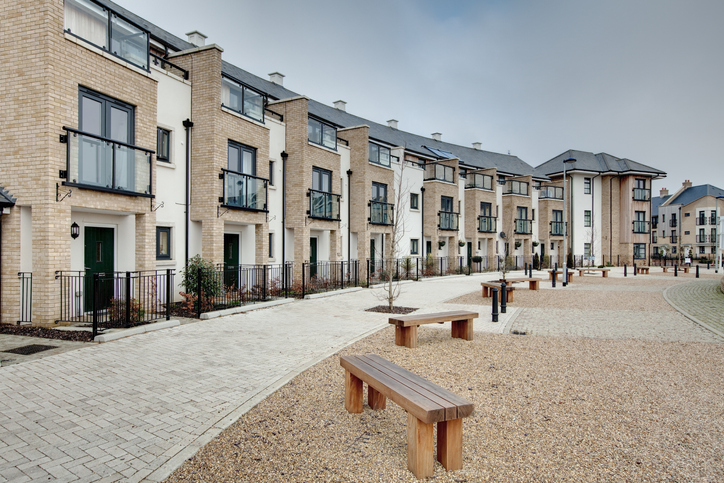Management Companies: What do they do and what’s new?
A summary on Management Companies and what they do, and what the future holds for Leasehold Reform.
It is commonly known that when you buy a freehold property, you own the building and the land on which it stands and houses are sold as freehold properties.
However when you buy a leasehold property, you own the property itself but not the land, and only for a set period of time as stated in the lease. At the end of that period of time, ownership will revert to the landowner, unless you extend the lease. Virtually all flats and maisonettes are sold leasehold and it is standard practice for residential long leaseholders to pay a service charge, either to the freeholder (often referred to as the Landlord in the Lease) or to a management company, to cover maintenance of the building and communal areas.
It is however becoming increasingly common for the owners of freehold houses to be required to pay similar charges, where there are jointly used areas on the estate.
Residential Long Leaseholders
When you buy a lease within a larger building, typically a block of flats, the communal parts of the building and the external areas are usually owned by the landlord, who is responsible for the overall management and maintenance of that building. Some landlords will choose to maintain, repair, insure, clean and manage the property themselves but often they appoint a managing agent to do so on their behalf. The agent may also offer other services such as providing central and employing security staff onsite. Freeholders may also charge Leaseholders a ground rent just for leasing the property out. This has been a bone of contention recently as many feel it is unfair for Freeholders to turn profit from charging leaseholders ground rent, and this is discussed later on below.
As the overall management of the block can impact on the property’s value, and on the individual’s enjoyment of their home, leaseholders are advised to take an interest in how the building is being managed, both at the stage at which they purchase the property and on an ongoing basis. Leaseholders may set up a Residents’ Management Company (RMC) to carry out these duties if they collectively own the freehold, but there is no requirement to do so.
Management companies must be transparent and they have legal and accounting obligations, and are subject to external scrutiny. They are accountable to the landlord not to the leaseholder, however as leaseholders are responsible for paying the service charge it is usually good practice to take their wishes into account. Information about how the service charge is calculated and what services will be provided will be set out in the lease and currently ARMA (the Association of Residential Managing Agents) estimates the average annual service charge in London to be £1,800 to £2,000.
Freeholder Property Owners
Nowadays, it is becoming more and more common, particularly for New Build properties, that Freehold property owners may also be required to pay a service charge and/or ground rent. This covers costs incurred on the common areas of the estate, for example upkeep of gardens and landscaping, private roads (unadopted by the local authority), drainage and bin storage areas.
These payment obligations will ordinarily be set out in the deed of transfer when the property is first sold by the developer, or as part of the contract to purchase.
As with leaseholds, the developer will often appoint a management company to carry out the required maintenance and management responsibilities. Alternatively, the developer might set up an RMC and transfer the ownership of the common parts to the residents to deal with the day-to-day maintenance of the communal areas and in turn they may then appoint a managing agent.
The Right to Challenge
Long leaseholders have a statutory right to challenge service charges where they feel they are unreasonable, or where they consider work has not been carried out to a reasonable standard. Freehold property owners do not have this right, although the terms of the transfer, and common law, may allow for some challenge. Where there is a managing agent in place, they must be a member of a redress scheme, which will handle any complaints made by freeholders.
Reform
It has been argued that the Leasehold system has required reform for quite some time, and it appears that action is finally being taken. The Government has consulted on reforms to the management of Leasehold and Freehold properties, and in May 2021, they introduced the Leasehold Reform (Ground Rent) Bill, which looks to be the first step in lowering ground rents. Future legislation will:
- Reform the process of the enfranchisement (leaseholders collectively buying the freehold) valuation used to calculate the cost of extending a lease or buying the freehold.
- Cap ground rents at 0.1% of the freehold value and introduce an online calculator to simplify and standardise the process of enfranchisement.
- Keep existing discounts for improvements made by leaseholders and security of tenure.
- Introduce a separate valuation method for low-value properties.
- Give leaseholders of flats and houses the same right to extend their lease agreements “as often as they wish, at zero ground rent, for a term of 990 years”.
- Enable leaseholders, where they already have a long lease, to buy out the ground rent without having to extend the lease term.
The Government has also announced an intention to regulate letting and property management agents, including setting minimum standards and creating a statutory regulator with enforcement powers. And the Building Safety Bill includes the requirement for all developers of new-build homes to be members of the New Homes Ombudsman scheme, which will set additional standards.
What does this mean for me?
If you are buying a property, be it leasehold or a relatively newly built freehold, you should establish whether you are liable to pay service charges, whether there’s a management company in place and how these liabilities and arrangements might change during the course of your ownership of the property. You may also need to consider, if you are buying a leasehold property, if the new legislation may impact your ownership or if you are a Freeholder for a leasehold block/property, what this means and what you may have to offer your leaseholders in the future.
Our Residential Conveyancing team is on hand to assist with your queries regarding management companies, service charges and how this may affect you or your property. If you would like further assistance, please do contact us.

